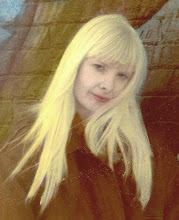
Al Jolson (May 26, 1886 –October 23, 1950) was an American singer, comedian, and actor. He is considered the "first openly Jewish man to become an entertainment star in America".[1] His career lasted from 1911 until his death in 1950, during which time he was commonly dubbed "the world's greatest entertainer”.
His performing style was brash and extroverted, and he popularized a large number of songs that benefited from his "shamelessly sentimental, melodramatic approach".[2] Numerous well-known singers were influenced by his music, including Bing Crosby[3] Judy Garland, rock and country entertainer Jerry Lee Lewis, and Bob Dylan, who once referred to him as "somebody whose life I can feel".[4]
In the 1930s, he was America's most famous and highest paid entertainer.[5] Between 1911 and 1928, Jolson had nine sell-out Winter Garden shows in a row, more than 80 hit records, and 16 national and international tours. Yet he's best remembered today for his leading role in the first (full length) talking movie ever made, The Jazz Singer, released in 1927. He starred in a series of successful musical films throughout the 1930s. After a period of inactivity, his stardom returned with the 1946 Oscar-winning biographical film, The Jolson Story. Larry Parks played Jolson with the songs dubbed in with Jolson’s real voice. A sequel, Jolson Sings Again, was released in 1949, and was nominated for three Oscars. After the attack on Pearl Harbor, Jolson became the first star to entertain troops overseas during World War II, and again in 1950 became the first star to perform for GIs in Korea, doing 42 shows in 16 days.
According to the St. James Encyclopedia of Popular Culture, "Jolson was to jazz, blues, and ragtime what Elvis Presley was to rock 'n' roll". Being the first popular singer to make a spectacular "event" out of singing a song, he became a “rock star” before the dawn of rock music. His specialty was building stage runways extending out into the audience. He would run up and down the runway and across the stage, "teasing, cajoling, and thrilling the audience", often stopping to sing to individual members, all the while the "perspiration would be pouring from his face, and the entire audience would get caught up in the ecstasy of his performance".
He enjoyed performing in blackface makeup – a theatrical convention in the mid-19th century. With his unique and dynamic style of singing black music, like jazz and blues, he was later credited with single-handedly introducing African-American music to white audiences.[1] As early as 1911 he became known for fighting against anti-black discrimination on Broadway. Jolson's well-known theatrics and his promotion of equality on Broadway helped pave the way for many black performers, playwrights, and songwriters, including Cab Calloway, Louis Armstrong, Duke Ellington, Fats Waller, and Ethel Waters.

No comments:
Post a Comment